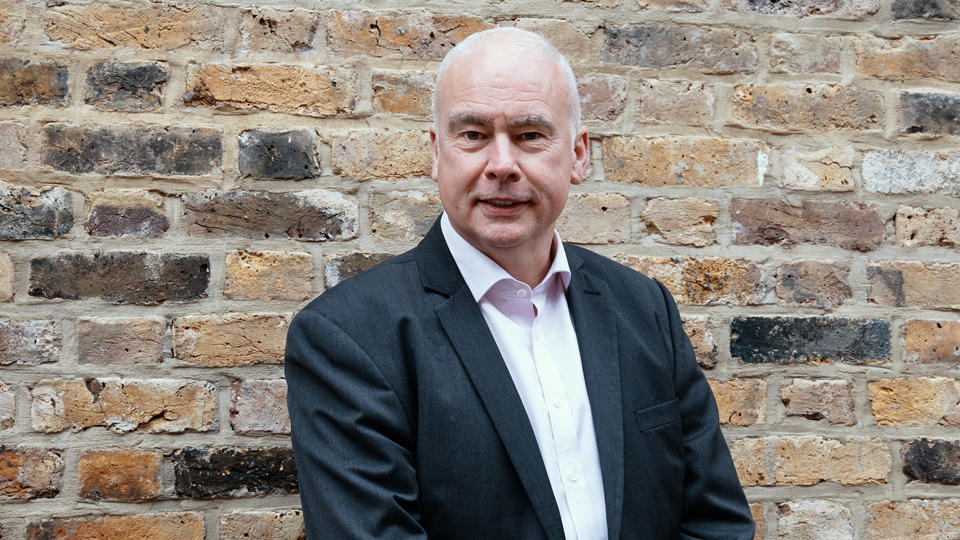- OT
- Industry
- Contact lenses
- The pursuit of variety and freedom
The discussion
The pursuit of variety and freedom
OT speaks to three practitioners about the benefits that portfolio optometry has to offer

31 January 2020
In recent years professional roles in optics appear to have been changing, with eye care practitioners choosing to work in roles in a variety of settings rather than a single five-day-a-week position. But why?
For independent prescribing (IP) optometrist Magda Everett, dividing her working week into a mixture of High Street work for Specsavers, hospital optometry for Bristol Eye Hospital and Newmedica, combined with further education, CET writing and professional affairs, ensures that she has an assortment of roles to challenge her.
Speaking about becoming a portfolio optometrist, Ms Everett told OT: “It was quite early on in my career that I took on a second role as I felt that I needed variety. The idea was to push myself out of my comfort zone and embrace opportunities to learn and develop new skills.”

Glasgow-based IP optometrist and practice owner of Mackie Opticians, Dr Scott Mackie, has been performing a range of roles within the profession for as long as he can remember. “I didn’t choose to become a portfolio optometrist, but shortly after opening my first practice around 25 years ago it just happened as I began to upskill for the benefit of the business and my patients,” he shared. “The more courses I completed to help the practice stand out, the more opportunities arose,” he added.
Today his working week involves two days testing in practice, with the rest made up of what he describes as consultancy. This includes working with the General Optical Council, the Association of British Dispensing Opticians (ABDO), NHS National Education for Scotland, rhe College of Optometrists and Visioncall, amongst others.
Plymouth-based dispensing optician Max Halford’s career evolved into one of a portfolio of roles around three years ago. Having worked full-time in practice his entire career, 10 years ago he became a member of Devon Local Optical Committee. Progressing through the ranks within the committee to become chair provided Mr Halford with the opportunity to learn more about the commissioning and clinical governance of optics, opening doors that he was not aware existed. Currently he balances the clinical lead of ABDO position and the optical lead role for Local Optical Support Committee (LOCSU) with High Street practice and LOC work.
Speaking about his journey, Mr Halford explained: “I had worked as a practice manager for 21 years and within the space of three weeks took on my roles with ABDO and LOCSU. It was a fantastic change, but it was very different to what I had been used to. I went from a very regimented role in practice to setting my own diary and balancing multiple roles and requirements in my working week.”
The idea was to push myself out of my comfort zone and embrace opportunities to learn and develop new skills
Counting the positives
For this trio of practitioners, the rewards that working in a range of roles brings them professionally are plentiful.When asked what it is she likes most about her portfolio career, Ms Everett said: “For me it’s the variety, the learning opportunities and keeping things interesting.”
She admits that she has tried many roles in order to find the ones that suit her interests best and believes that “it’s not until you try things that you will find where your passion lies.”
The optometrist highlights that not everything will suit everyone but “that’s ok.”
“I thought leadership or academia was for me so I completed a post graduate certificate in eye care governance, but in doing so I realised that I am definitely a clinician at heart,” she shared.
For Dr Mackie, the best thing about portfolio optometry is that “it allows you to pick your own career path.” It is also a way of working that he believes could help practitioners remain in the profession for longer. “It can be said that there is a slight problem in optometry with people leaving the profession because they didn’t know what they were getting into or feel that they are stuck in a job with nowhere to go. A portfolio career provides options,” he said.
Mr Halford noted that eye care practitioners should be aware that rewards from a portfolio career are not always financial. For him they come in the form of being able to network, learn and be exposed to different challenges.
Taking on a range of roles has also helped Mr Halford grow professionally, he explains. “From the point of view of my professional development, it has been fantastic. Overall it has meant that my knowledge base has expanded and spread into many different areas where I would never have been taken had I followed a pure line of clinical work within a practice,” he elaborated.
I didn’t choose to become a portfolio optometrist…it just happened as I began to upskill for the benefit of the business and my patients
Patient care
And the benefits are clear for the patients too, as Ms Everett explained: “My passion for the profession is strong as I am not always doing the same monotonous things and this is reflected in the way I manage my patients. They can tell that I enjoy what I do and these roles enable me to focus and understand the patients’ best interests a lot more.”
Remaining in High Street practice for part of his week is important to Dr Mackie as it allows him to join the dots between the governance, politics and the direction that optics is heading, which is useful in practice “at the coal face.”

“Testing in practice is really important to me. If I get too involved in strategy and I don’t really know what’s going on on the frontline, there can be a disconnect,” he said.
Operating a portfolio career can also bring benefits to Dr Mackie’s patients. “The big patient benefit of being a portfolio optometrist is that if someone comes in and they have a problem, I can fix it as I have a variety of skills, or I know someone who can fix it due to the work I do and the people I meet. It enables me to use my skills to the benefit of the patient and puts the patient at the centre of their care,” he said.
I would never consider going back to a single role because I get to be in control of my career and have complete freedom
Complete freedom
All three practitioners acknowledge that having a portfolio career does come with challenges.
For Mr Halford time management can be tricky and requires a high level of organisation to make it work. “From time to time you will find yourself in a situation where you have to prioritise tasks and meetings. It can be difficult when you can’t attend a meeting, but my colleagues are great at understanding what’s involved in the dual roles that I have.”

For Dr Mackie the downside of a portfolio career is losing employed benefits such as pension and sick pay. He added that during busy periods he can also find himself working six days a week. “I get offered more work than I can take on, which is a good problem to have I guess.”
Ms Everett concurred that workload fluctuation can prove difficult at times. “There are weeks when I find myself working in my spare time. But for me, it’s worth it with my overall goal in mind to constantly better myself and develop; I enjoy what I do and it doesn’t feel like a chore.”
All three practitioners said that they would not return to a single role now. “I would never consider going back to a single role because I have complete professional freedom and am in control of my career,” Mr Halford said.
Sharing tips for practitioners considering portfolio optometry, Ms Everett advised: “Put yourself forward, offer to volunteer and apply for a variety of roles. There may be opportunities available that you are not aware of, so expressing your interests to your peers and networking is important – it was my director who opened up doors for me to be able to expand my scope of practice.”
Image credit: Getty/runeer
Advertisement


Comments (0)
You must be logged in to join the discussion. Log in